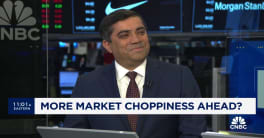Two major economic players, Freddie Mac and Federal Reserve Chairman Alan Greenspan, continue to be upbeat about the near future of real estate.
The Chairman, in a series of speeches delivered last week, stated that neither record high oil prices or soaring consumer debt should be of undue concern to the financial markets, nor is the inflated housing market a bubble that is about to burst, destroying the equity of millions of American families.
Greenspan famously commented on the �irrational exuberance and unduly escalating stock prices� in 1996. However, he seems comfortable with a housing market where values have risen nearly 40% in the last three years as interest rates dropped to historic lows. In some demographic hot spots such as Las Vegas, Boston, and Washington, D.C. prices have risen even higher � as much as 70% - in the same period.
Greenspan stated that the sheer size of the U.S. housing market provides some insulation from a rapid drop in prices and that Americans seemed to be handling their mortgage and other debt well.
According to Reuters News Agency, many economists disagree with the Chairman�s assessment, calling him a �cheerleader� or complaining, in the words of one bond strategist that �There just doesn�t seem to be that much that worries him.�
Freddie Mac is not quite as �exuberant� as Greenspan, but The October Economic and Housing Market Outlook issued by (its) Office of the Chief Economist sees a market that will only gradually slow through the end of 2005. The report projects continued strong, albeit diminished, housing starts and sales and a continued low mortgage burden.
Housing starts, which totaled 1,850,000 in 2003, are projected to total 1,940,000 in 2004 (largely due to an estimated spike in the Third Quarter) and 1,800,000 in 2005, a decrease of 9.3%. 2006 projections drop another 9.5% to 1,720,000 starts, still above the level of the heated 2002 market.
Sales of both existing and new houses are projected to finish the year at 7,660,000 transactions, an increase of 9.4% over last year, and then drop back to 2003 levels with 7,150,000 sales in 2005. 2006 sales are estimated at 6,790,000, a drop of 9.5%
Freddie does, however, see a curtailment in the rapid increase in housing prices. The annualized growth rate of its Conventional Home Mortgage Price Index, which ranged from 7.5% to 8.6 percent in the 2001-2003 period, is expected to finish this year at 8.5% then drop, somewhat precipitously, to 6.1% in 2005 and dip another point in 2006. Remember that this is not a drop in actual housing prices, merely a slowing in the rate of increase in those prices. Not necessarily a bad thing.
The best news? Freddie sees mortgage rates only inching upwards over the next 26 months.
While American consumers were reveling in average 30 year rates of 7% in 2001, the projection for 2006 is 6.4%. Hardly a deal killer for first-time and trade-up buyers, particularly price acceleration does indeed slow.
On the downside for loan originators, however, is that, as housing sales wind down, so will the phenomenal rate of refinancing. In 2003, refinancing constituted 65% of the mortgage market. Freddie projects that 2004 will show a substantial decrease to 45%, then to 36% in 2005 and 30% in 2006. While that slice of the pie shrinks, so unfortunately does the entire pie.
But, back to the real world.
Rates on fixed rate mortgages dropped during the week of October 21 to 5.69% for a 30 year (down from 5.74 the previous week) and 5.07% for a15 year (5.14). One year ARM�s nudged up just a bit from 4.01 to 4.02%
Greenspan, Freddie Mac Upbeat on Near Future of Real Estate
Fri, Oct 22 2004, 7:00 AM
More MND Newswire:
-
Today, 8:36 AM
-
Tue, 12:47 PM
-
Wed, 8:35 AM
Other points of Interest
-
Tue, 4:12 PM
Trending News
-
Tue, 4:12 PM
-
Today, 8:36 AM
-
Today, 11:23 AM
-
Today, 10:31 AM
How would you like to share this content?
Share via Social Media:
All social media shares will include the image and link to this page.







